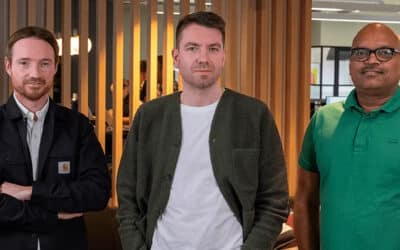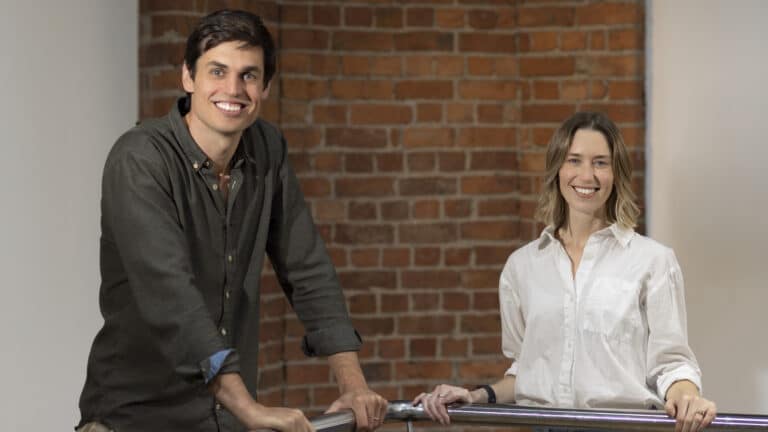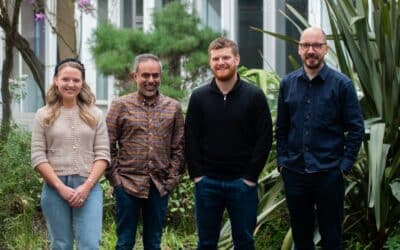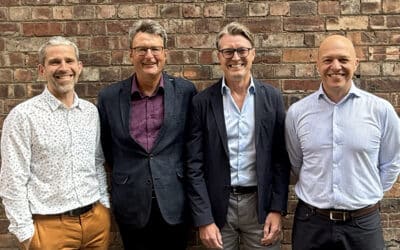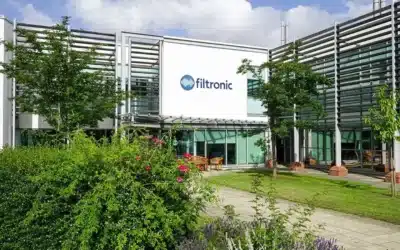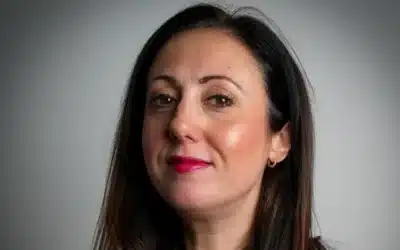Zendo Energy, a York startup building what it describes as the first ‘Energy OS’ to decarbonise computing power in data centres, has raised £1.75 million in a pre-seed funding round.
The round was led by Fly Ventures, a deep tech VC firm that was a first cheque investor in UK autonomous driving unicorn Wayve. Fly is joined by Octopus Ventures and Pact VC who also participated in the round, as well as angel investors from the data centre industry.
The investment will supercharge Zendo’s development of an advanced software platform that enables data centres to adapt to the growing unpredictability of AI workloads while navigating volatile energy markets that increasingly rely on intermittent renewable sources such as wind and solar.
Thanks to the widespread adoption of AI and rapid rise of cloud computing and streaming services, electricity demand from data centres globally is expected to more than double by 2030.
Only half of this demand is likely to be met by renewable sources, posing a significant challenge to global progress towards decarbonisation.
READ MORE: Manchester rapper and poet Meduula fronts new campaign for city region
Zendo says its models can save data centres up to 25% in energy costs and simplify the integration of renewables into their power mix.
Zendo’s AI-powered software delivers flexible energy with predictive analytics that allows data centre operators to analyse their customers’ usage patterns, forecast demand and secure more customised energy tariffs.Their models also unlock ‘stranded power’, enabling operators to maximise the value of their existing infrastructure.
The strength of its pre-seed round “reflects the market’s confidence in Zendo’s ability to increase revenue and generate energy savings for data centres” as demand for the industry’s services reaches an all-time high.
Data centres face growing difficulties in planning for their customers’ energy demands due to the boom in AI workloads, which is expected to account for 70% of data centers’ total capacity by 2030.
It’s a particular challenge for colocation data centers, which lease server space to multiple companies and must deliver power to a diverse range of customers without visibility into the applications driving their core demand.
“These facilities are like WeWorks for servers,” said Jade Batstone, CEO and co-founder of Zendo Energy. “They’re procuring energy to power all of their tenants’ workloads, but they’re having to make their best guess at how these workloads will evolve over time.”
Drew Barrett, COO and co-founder of Zendo Energy, added: “Data centers are actually a lot like energy suppliers – their main cost is energy and their revenues are largely tied to the power capacity they sell. Since energy costs are often passed through to the end customer, being able to manage price volatility is critical for these data centers to protect their margins and maintain competitiveness in the market.
“Cost and sustainability should not be at odds in this industry,” he went on. “By supporting operators to get the most out of their existing infrastructure and reduce the risk, cost and complexity of renewable energy adoption, we’re enabling data centers to be heroes rather than villains in the global clean energy transition.”
Co-founders Batstone and Barrett bring over two decades of experience in renewable energy and B2B software to the data center industry.
Prior to founding Zendo, Barrett spent 13 years at Octopus Energy, latterly as head of renewable procurement, leading the multi-million turnover business unit for the UK’s largest energy supplier.
Silicon Valley native Batstone was an early employee at payments company Square and helped to set the business up in the UK. She has also built and led product innovation teams at SWIFT, developing software products to solve critical challenges in the financial services industry.
Kirsten Connell, partner at Octopus Ventures, said: “We’re delighted to be backing Zendo Energy in their mission to decarbonise data centres. This is a world-changing problem, one that will only become more pressing as AI adoption continues its exponential rise, and requires exceptional founders to solve it. We’ve been really impressed with the team to date, and are looking forward to working with them to build a more sustainable planet.”

